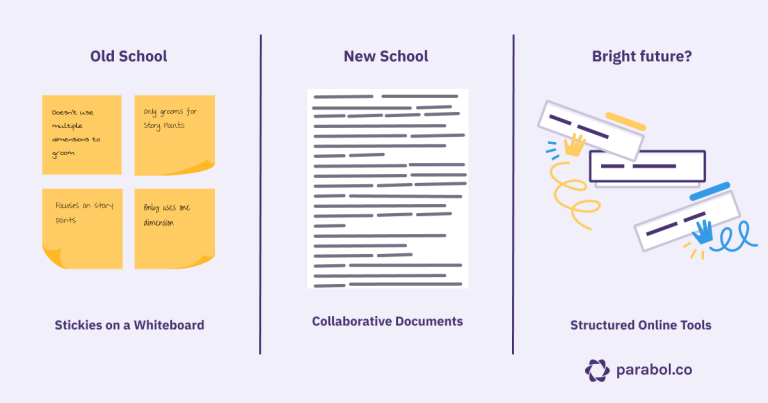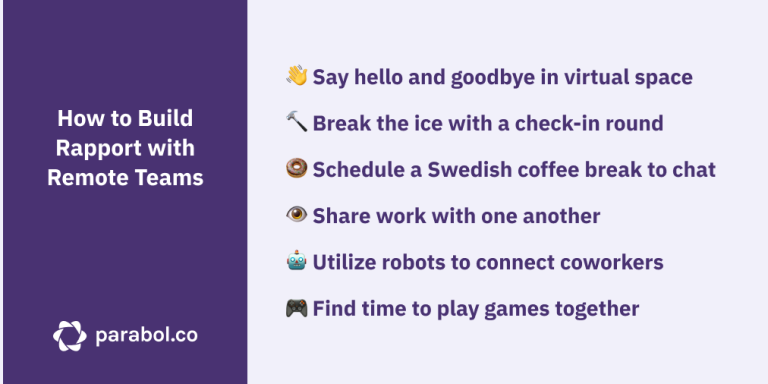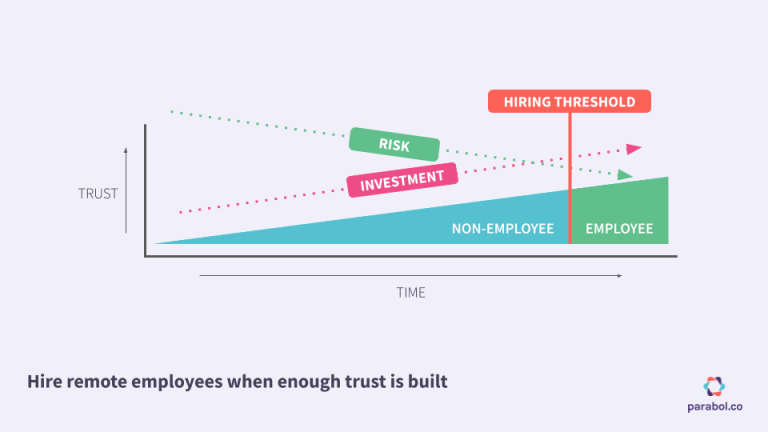
This week, we advanced several candidates who’ve been through our revised culture interview format that explores their alignment to our values.
Specifically, we’ve revised the way we try to see if a candidate holds the capacity for a specific form of empathy. Before we get into the changes, let’s talk about what we were doing before and where we were running into trouble.
Parabol’s culture interview is a panel interview. We select at semi-random (biasing for diversity) 3 members of our organization to meet with a candidate. We ask around a half dozen standardized questions, alternating with opportunities for a candidate to ask their own. candidates ask us some interesting questions, like:
- If Parabol was a main dish, about to be served, whats the missing ingredient?
- How is the company dynamic changing as the company has grown?
- Can I take all my national holidays as company holidays? (a: yes, you can!)
Historically, one of the questions we asked candidates was a “three-parter”:
- Can you think of a recent time where you last felt misunderstood or fell into conflict with another person?
- Can you tell us about what happened?
- Could you take the shoes of the other person and tell the story from their perspective?
This last question, #3, was the real bit we were after.
We want to work with people who are able to see the world through other’s eyes. With many of us working in different time zones from one another, it’s helpful for one’s own happiness to be able to interpret communications from multiple perspectives. The above line of questioning was an attempt to surface this. The problem was: we felt it might not be as reliable or inclusive as we want. We suspected we were getting several false negatives.
Improving our culture interview to probe theory of mind
We reached out and spoke to a few folks. One, a research psychologist, helped us reshape our interview to more specifically test what we were interested in: theory of mind. Our previous line of questioning likely exhibited some of the following faults:
- If the interviewee is unable to think of a conflict scenario on the spot that part of the interview can’t be used
- We likely screened out folks who are conflict-avoidant or experienced the word “conflict” negatively
- Participants might assume we’re looking for other things (how nice are they? how well do they resolve conflict?)
The revision
Now, we’re sending a question ahead of time that avoids the use of the word ”conflict.” Now we ask, “What is a process or cultural practice implemented by a prior employer you disagree with and would not want to see in your next job? Please be as specific as possible.” Sending this question ahead of time gives people time to think.
Then, during the interview we say:
I appreciate the example you gave of the practice you wouldn’t want to bring to your next job. Even though we find your position reasonable, we’d like to ask you to put yourself in the position of your previous company’s leadership. It’s important that the folks we work with can see various sides of an argument, as we think that skill is a prerequisite to healthy communication and good decision making. We’d like you to ”look out of their eyes” for a moment, why do you think they hold the position they do? Where do you think they are coming from?
We are still asking for folks to explore the mental states of people who aren’t them, but we believe we’re being more targeted in what we’re looking for: the ability to step into another person’s shoes, simulate a different perspective, and explore it didactically to potentially reveal new truths.
This revision may (and likely isn’t) the optimal way to probe for what we’re trying to select for, but we hope it’s better. And that’s all we ever try for—doing better.
Metrics

The summer slump continues. Historical data tells us we should see our growth indicators turn around by September 10th’s report. One bright spot this week: we saw a good rebound in the number of meetings run, especially the number of sprint poker meetings.
This week we…
…published an article with thoughts on how to make an agile transformation a success. This article was written in conjunction many great folks who are doing transformation work every day.
…opened a role to hire a Tech Recruiter. From here on out, we’re anticipating continuously adding to our team. If you have a passion for finding and granting great global employment opportunities, please apply!
…had a guest post, 21 Ideas To Get Quiet Teams Talking In Sprint Retrospectives, published on the digital project manager community blog.
…conducted interviews for research we plan to publish. We’ve collected responses from more than 100 folks so far, and are learning some valuable insights on various companies’ plans for remote work, their sync/async habits, their agile culture, and product feedback.
…booked a design retreat in Austin, TX for October. We’re also planning on a marketing team retreat, sometime a bit later this year. We deferred getting the entire company together until 2022 (pandemic permitting).
Next week we’ll…
…hold an in-person Sales Retreat on Whidbey Island, Washington State.
…wrap up Sprint 85.
Have feedback? See something that you like or something you think could be better? Leave a public response here, or write to us.








